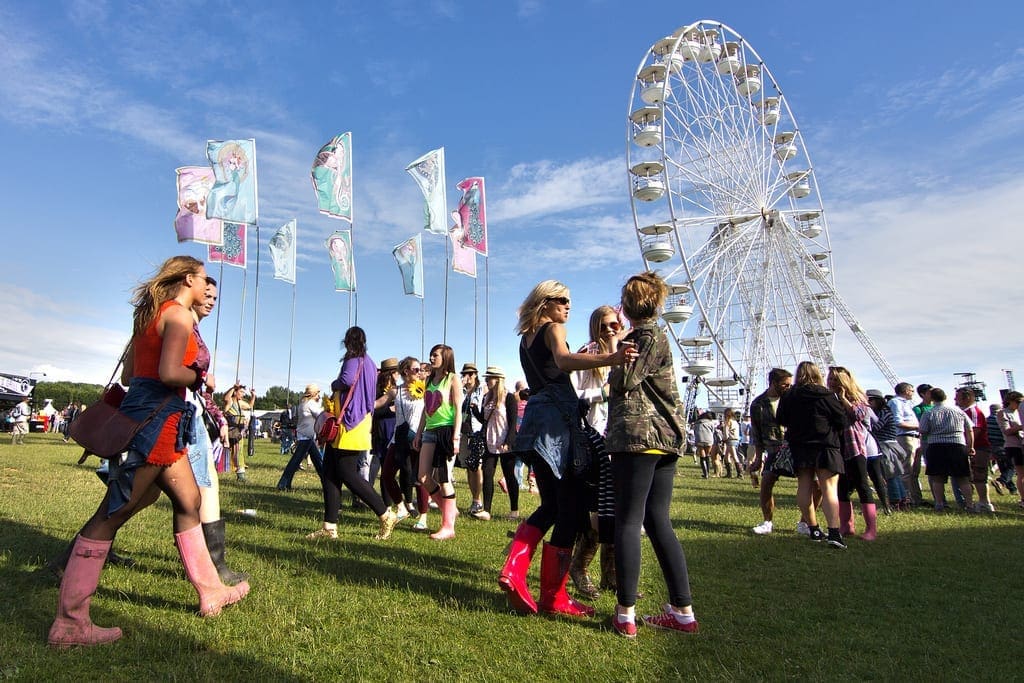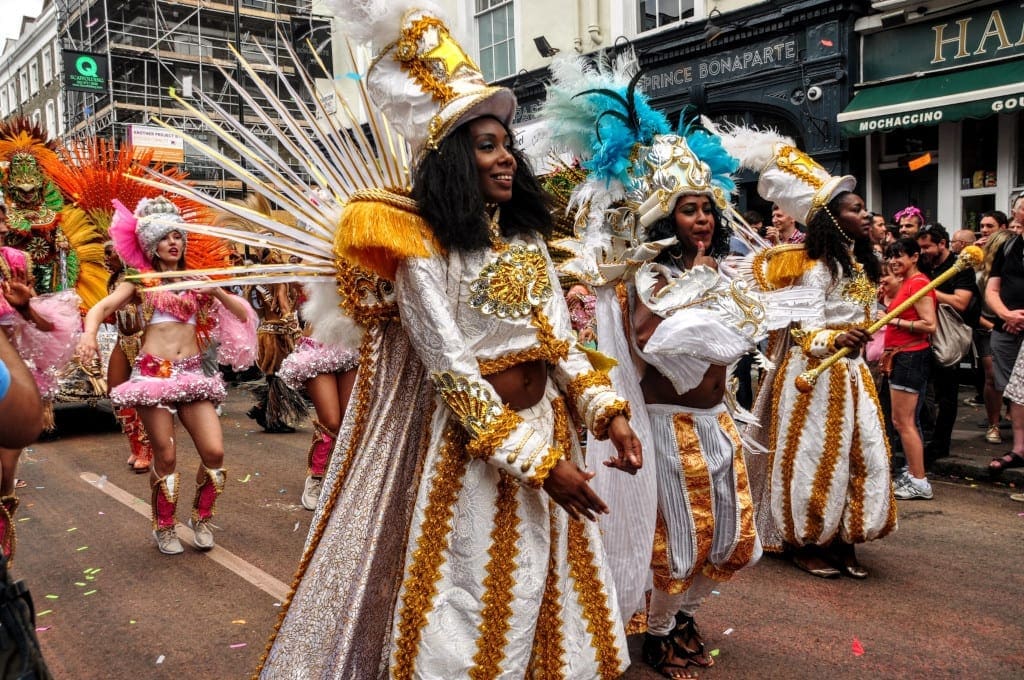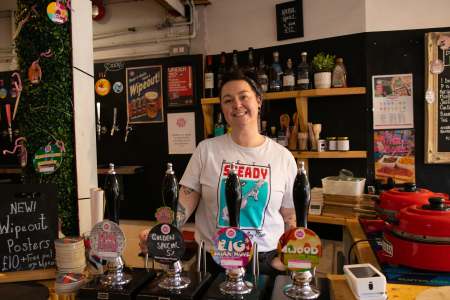Typical of us Brits, the UK is not just one country but four – Scotland, Wales, Northern Ireland and England. So, if you are not familiar with the country and planning a trip to the Kingdom then the first problem is where to start, which is where our handy UK travel guide for the Over 40s comes in handy.
At the heart of the nation(s) is London. Most visitors on their UK travel come to the capital, 20 million of them in 2018, and that’s not just because London Heathrow is the major airport hub in the region. London has a heritage and culture to match anywhere in Europe. Entrance to many of its museums and galleries are free, including the British Museum and Tate Modern, although the former does ask for a donation and the latter has exhibitions on certain floors that carry a charge. London also has a dining and entertainment culture to rival any city in Europe.
But there is much more to the UK than its capital. Castles, churches and cathedrals dating back to before the Norman invasion in 1066, are littered around the country, some in a wonderful state of disrepair, others preserved by the National Trust and English Heritage.
With such a long coastline – over 19,000 miles if you include the more major islands – it’s hardly surprising that Brits like to go out for a ramble.
Although Scotland might be renowned for the quality of its castles, our personal favourites lie in North Wales. Even in London itself you have the magnificent Tower of London, which dates back to the 1080s and has seen many a nobleman loose his head, as well as the odd Queen, just a stone’s throw from the main banking district of the City of London, the financial capital of Europe.
With such a long coastline – over 19,000 miles if you include the more major islands – it’s hardly surprising that Brits like to go out for a ramble. Many areas have designated coastal paths, although always take care of local weather conditions before setting out. And, though hardly the temperature of the Mediterranean or Aegean, the UK does have some magnificent beaches, and especially around Cornwall excellent waves for surfing.
Throughout the land, there are a series of national parks, where you can walk, or check into a B&B and enjoy the local fare – English cuisine is no longer the laughing stock that it rightfully was some thirty years ago. And although its mountains are dwarfed in comparison with those of the Alps, what Scotland lacks in quantity it more than makes up in quality, especially when washed down with a wee dram of single malt whisky on a whisky tour.
Whether it’s taking in a Shakespeare play at Stratford-upon-Avon, wandering around the unspoilt villages in the Cotswolds, nipping in for a bit of shopping at Harrods (or better still Borough Market), glorying in the majesty of Lincoln Cathedral, or forgetting the years at one of the many summer festivals, the UK has it all. And I haven’t even mentioned Northern Ireland’s unforgettable Giant’s Causeway.
Whetted your appetite, keep on reading, and learn all you need to know about UK travel.
UK Culture and Heritage
Few, if any, countries can boast a cultural heritage as rich as that of the UK. Stonehenge’s stone circle dates back to around 2500 BC placing it in the same era as the Pyramids of Giza. Stonehenge, however, isn’t even the oldest or largest stone ‘circle’ in its own county, Wiltshire, let alone in Britain, paling in comparison with the oft-neglected Avebury.
In relatively more modern times, the UK saw a succession on invaders, from the Romans, to the Vikings, Angles, Saxons and even the Jutes, until the Norman Conquest in 1066. Each has had its lasting impact on the country’s heritage from Roman towns such as Chester and Bath, with its famous Roman baths, to Viking settlements highlighted at York’s Jorvik museum, and various churches and cathedrals from Saxon times, the most spectacular of which are Canterbury Cathedral that dates back to 597, York Minster and Lincoln Cathedral.
It was during the Tudor period that many of the country’s finest houses, including Hampton Court, Chatsworth and Burghley House flourished.
Indeed, the bloody history of the isles is reflected in the wonderful castles built to protect land from rival barons and potential invaders, such as the majestic castles of Conway and Caernarfon in North Wales, both of which were built in the late 13th Century to protect Edward I’s property in the Principality. Other castles stand testament to the War of the Roses (1455-85) when the crown was passed between the rival houses of York and Lancaster in a game of dynastic pass the parcel, until Richard III lost both horse and life at Bosworth to bring about the Tudor dynasty.
It was during the Tudor period that many of the country’s finest houses, including Hampton Court, Chatsworth and Burghley House flourished. All of these are open to the public, with the latter two still occupied by the original families, making for an interesting exploration of the history of the country. Alternatively, if you prefer Victoriana, why not pop in on Osborne House where Victoria lived the latter years of her life, and eventually died.
However, Tudor and Elizabethan history is perhaps best known for the development of the Arts, and for one person in particular, William Shakespeare. Make sure you see one of the Bard’s plays performed by the Royal Shakespeare Company at his home town of Stratford-upon-Avon, where he was born and died – both on 23 April – during your UK travel, or while in London visit the Globe theatre, which was reconstructed in the style on the original theatre where his plays were initially performed.
The D-Day Story in Portsmouth is a magnificent tribute to the sacrifice made by those in the Second World War, as is the National Memorial Arboretum
For more modern theatre and musicals, London’s West End, particularly around Shaftesbury Avenue, rivals New York’s Broadway as the dramatic capital of the world. The capital’s Southbank Centre is a hub of activity, especially on a warm summer’s evening when people take to the riverside’s many bars and pop-up restaurants. It has the Tate Modern, Globe Theatre and National Theatre to vie for your attention, as well as the London Eye, with views of Big Ben and the Houses of Parliament on the opposite side of the Thames, not to mention the towering Shard nearby. Those interested in classical music could try the Festival Hall, also on the Southbank, or Barbican Centre, while opera buffs should head for the Royal Opera House or London Coliseum, or if you are passing through Sussex, pop in on the Glyndebourne Festival, held between May and August. See, there is so much culture to keep you entertained on your UK holidays.
The year 2020, marked the 75th anniversary of the D-Day Landing, and while you may not be one for glorification of war, the D-Day Story in Portsmouth is a magnificent tribute to the sacrifice made by those in the Second World War, as is the National Memorial Arboretum, near the delightful city of Lichfield, to those who have died in service in combat since 1945. The latter is a sobering realisation of the folly of war.
Did You Know?
Edward II was the first Prince of Wales. Born in Caernafon Castle in 1284, Edward I’s eldest son was crowned Prince of Wales in 1301, at Lincoln Cathedral where the English Parliament was currently held. Ever since, the monarch’s eldest son has become Prince of Wales, with Prince Charles being invested at Caernafon in 1969. Legend has it that Edward I vowed the first prince would speak no English, thus appeasing the Welsh barons who were always striving for independence. Then, he produced his own infant, who could speak no tongue at all. Needless to say, the story does not stand up to much scrutiny, for the future Edward I was 16 when made Prince, and unless he was a very late developer would most probably have spoken French, just like the rest of the Royal Court at the time, but possibly not English nor Welsh. But at Travel Begins at 40 we don’t feel that facts should stand in the way of a good story.
Latest UK Travel Industry News
UK Outdoors and Nature
If London becomes too hectic for you, or you’ve had your stock of culture, then the UK has the most incredible and varied scenery. With 15 national parks stretching from the moors of Dartmoor in the southwest to the Cairgorms in Scotland there is bound to be a park easily accessible close to where you are staying. All of these have excellent walking opportunities for the more active, or are ideal just to sit and enjoy the views at a local pub.
The Pembrokeshire coastline is great for trekkers, with easily followed trails, while the Cairngorms and Snowdonia have breathtaking mountainous terrain. Cornwall holidays are great, especially with the great seafood and rugged coastline. If its lakes that you are after then Loch Lomond and the Trossachs and the Lake District rival the Italian Lakes for the spectacular. While if you are in the middle of the country, then soak in the other-worldliness of the North York Moors or the Peak District. But really to highlight any of the national parks is to do injustice to the others, for they all have their particular beauty, and each makes for a great trek on your UK travel.
And arguably outside the parks there lies as much beauty as within, especially with so many islands and isles littered off the coast of the main island of Britain, from the Isle of Wight and Isle of Man to the Channel Islands of Sark, Alderney, Guernsey and Jersey in the South to Shetland, the Orkneys and Hebrides in the North, ideal for watching the Northern Lights.
Just make sure you check up on the weather before you set out on any walk as conditions can change quickly especially if the clouds roll in or there is thick fog. And make sure, where indicated you stick to the paths, especially if local bird life is nesting there.
Those wishing to take advantage of the great outdoors on their UK holidays, should note the section on Weather in the UK below.
UK Travel Top 5 Visitor Attractions (2017)
All in London
British Museum – 5.9 million
Tate Modern – 5.7 million
National Gallery – 5.2 million
Natural History Museum – 4.4 million
Victoria and Albert (V&A) Museum – 3.7 million
UK Food and Drink
Jacques Chirac is reputed to have said of the British in 2005, that “you cannot trust people whose cuisine is so bad”, an observation which led Egon Ronay to respond that, “a man full of bile is not fit to pronounce on food.” While the former French President’s comments might have had their time and place, by the turn of the Millennium they were as outmoded as his politics.
British cuisine has come a long way since the times of le rosbif, and while both the Sunday Roast and fish and chips are as popular as ever, the country has embraced a diversity of cuisine, allied to quality of local, fresh produce that few other nations have embraced.
London alone has 72 Michelin-star restaurants (2018), placing it seventh globally behind New York (5th) and Paris (3rd) alone outside of Asia. Tokyo tops the list with 304 stars, more than double its nearest rival Kyoto (Osaka and Hong Kong complete the top seven). However, while the restaurants of Paris are dominated by French and North African cuisine and those of Tokyo by Japanese, London’s are truly cosmopolitan – after all the chicken tikka masala is the national dish.
If you are lucky enough to be close to a local farmers market or food fare on your UK holidays, make sure you pop in. You are bound to be in for a treat.
In recent years we’ve seen an explosion in pop-up restaurants and an emphasis on local produce and provenance, as well as the predominance of the gastro pub. Scottish smoked salmon, Welsh lamb and Cornish pasties may have some international repute, but how many of you have heard of pork pies from Melton Mowbray, Yorkshire black puddings, Cromer crabs and Dunstable oysters? The local fare on offer is diverse and truly wonderful. And if you are lucky enough to be close to a local farmers market or food fare on your UK travel, make sure you pop in. You are bound to be in for a treat.
Food festivals are popping up all around the country, especially in Summer. Food Rocks in Dorset, the Ludlow Food Festival on the Welsh borders and the Abergavenny Food Festival in the Principality are just a few of the many fine food fares across the country. And if you are looking for a particular treat then why not try the Isle of White Garlic Festival or the Alresford Watercress Festival?
While British wine is still very much an expensive indulgence – pound for pound it doesn’t compare with produce from the Continent or the New World – local beer and cider is much more an affordable necessity. The excellent Campaign for Real Ale is largely responsible for revitalising local British ales, as well as local festivals such as the Ealing Beer Festival, although in recent years, like elsewhere, the market has become flooded by craft beer, which sadly is not of the same standard as in the US. The best bet is to try the local brew in your local pub. Suffolk and Yorkshire have outstanding ales often with interesting names. And if you happen to be anywhere near the town of Masham make sure you pop in for a pint of Old Peculiar, you will not regret it.
Bushmills has been distilled in Northern Ireland since 1608, allegedly the first legal distillery in the British Isles
The West Country is noted for its cider, only don’t try the local scrumpy unless you want to pass out early. While Scotland is famed for its whisky, which fuels the whole economy, both Northern Ireland and Wales have their own varieties. Bushmills has been distilled in Northern Ireland since 1608, allegedly the first legal distillery in the British Isles. As with ale, the trick is to try a dram of the local stuff. A highland or island malt is likely to have a more peaty flavour than the smoother Speyside single malt. Irish whiskies, like their American cousins, tend to be sweeter that Scottish. Whatever you do, don’t add a mixer, and if you ask for ice in traditional areas you might be requested to leave.
In recent years there has been an explosion in gin distilleries or ‘ginaissance’ in the UK. There are some 315 gin distilleries in the UK, compared with 152 in 2013, and botanicals are all the rage. So, you are as likely to have a sprig of rosemary offered with your G&T as a slice of lemon. And London has exploded into a morass of gin palaces, reminiscent of Victorian times.
UK City Breaks
Clearly, London leads the way as the most popular city to visit on your UK travel. However, any of the nation’s other three capitals – Edinburgh, Cardiff and Belfast – are great destinations in their own right. While the latter two have seen something of a renaissance in recent years, largely funded by EU regeneration grants, ironically as both Wales and Northern Ireland voted Leave in the EU referendum, Edinburgh has been at the heart of the European cultural scene for generations.
Dominated by its impressive castle built on the 700-million-year-old extinct volcano that is Castle Rock, Edinburgh is an imposing city built of granite. Arguably the best, or worst time, depending on your perspective, to visit Auld Reekie is during the Festival and its Fringe in August (see Festivals section below) when the town is invaded by tourists from around the globe. At other times accommodation is easier to find, and more affordable, and then the city is a great place to wander around and soak in the history.
Other cities, such as York with its impressive Roman wall and cathedral, Bath, Stratford-upon-Avon and Chester are rich with history and make for great weekend trips. While those into sport can always take in either or both of neighbouring Manchester or Liverpool, combining it with a trip up to the Lake District or down to North Wales.
The more intrepid might venture to Glasgow, Bristol or Newcastle, real cities with dynamic and exciting nightlives. Or why not sample some of the cities normally off the list of destinations to visit on your UK travel, such as Derby, the city of pubs, or Stoke with its fine World of Wedgwood. Better still, visit Hull arguably the UK’s most underrated city and current UK Capital of Culture, and while you are there, pop in on neighbouring Beverley and visit the glorious Beverley Minster, try out its markets and haunted pubs.
UK Festivals
Most festivals tend to be held in the summer months from June to August, when there is less chance for rain to disrupt – though try telling that to Glastonbury’s revellers – and the days stretch well into the night, making this this perfect for you UK holidays.
Apart from Glastonbury, which is held at the end of June, other mainstays of the music festival season include World Music festival Womad and the Isle of Wight Festival. Although if you are looking for something a little bit more laid back then why not try the Whitby Folk Festival or the Lindisfarne Festival in the beautiful Northeast, and for jazz enthusiasts there is the EFG London Jazz Festival.
August is the month that sees two of the UK’s most famous urban festivals. Edinburgh turns into an enormous street festival with both the Edinburgh International Festival and the Edinburgh Fringe coming to town. With two of the foremost arts festivals in Europe, the Scottish capital is a must on your UK travel, if here that month, with theatre, comedy, dance, exhibitions and music flooding the city, often at minimal or no cost. Make sure you book accommodation well in advance as the city’s hotels fill up early. Alternatively, you could always try the Fringe by the Sea in neighbouring North Berwick, which has a more chilled attitude.
The last weekend of the month, coinciding with the August Bank Holiday weekend sees the streets of London erupt in a multicultural frenzy in the Notting Hill Carnival, the largest free street festival in Europe. Expect steel bands, an enormous parade and two million people having fun. Although the festival has been dogged by violence over the years, more recently peace seems to have held sway, but it’s best to take sensible precautions if attending.
From Maypole dancing to cheese rolling and even watercress eating, the UK has a diverse and rather eclectic range of festivals. Make sure you check out our Festivals in the UK for an idea of what is happening during your UK travel.
What’s in a Name?
Britain or Great Britain consists of the island of Britain, namely England, Scotland and Ireland. While the UK, or the United Kingdom of Great Britain and Northern Island to give its full name, combines all four nations, the British Isles, in political terms, include all the other smaller islands, such as the Isle of Man, Guernsey and Jersey, which are not part of the UK but are Crown Dependencies, and Shetland, the Isle of Wight, etc., which are part of the UK.
However, geographically the term British Isles includes the whole of the island of Ireland, including the Republic of Ireland, which is a totally separate country to the UK. People from the UK are called British. However, under the Good Friday Agreement, people from Northern Ireland can choose to be referred to as Irish (normally Catholics), which they are in geographical if not political terms, or British (normally Protestants), which they are not, at least geographically. Confused?
UK Weather
London gets less rain per year than Milan, New York, Dallas, Buenos Aires and Shanghai. However, it’s sensible when packing for your UK travel to include an umbrella, or brolly, as the UK weather is famously changeable.
As the prevailing wind comes from the south west, most of the rain falls in the West of the country – which explains why Wales and the Lake District are so green – and Scotland. Although nothing like a tropical monsoon, when rain does fall it tends to settle, so pack waterproofs when walking, and adopt a flexibility to your planning to allow for the weather. After all, there are so many museums and galleries in the UK, ideal for that rainy day, or pubs to rest while the rain subsides.
A temperate climate, the temperature never plummets to the depths of parts of mainland Europe, with temperatures scarcely dipping much below 0C, even in the coldest months of January and February, although the highlands of Scotland can see heavy snow. July and August are the hottest months, with temperatures sometimes reaching the low to mid 30sC, while October to December sees the most rain, depending on which part of the country you are in.
Days are the longest in June and July, while the night tends to draw in early in December and January.
Sunniest Place in the UK
Bognor Regis, Sussex
Wettest Place in UK
Snowdonia, Wales
When to Go on Your UK Travel
Although the summer months have the hottest temperatures and the longest days, with the least rainfall, it is not necessarily the best time to visit.
August in particular can see popular tourists attractions overrun, especially those catering to families, as this is when the long school summer holidays take place. Accommodation also tends to be more expensive.
Spring (March to May) and Autumn (September to November) are less crowded and the countryside is at its most beautiful, although the weather is even more unpredictable than normal. May to June and September to October is probably the best time to visit, especially the latter when the autumnal hues are most spectacular.
There are some great Christmas markets around the country, such as the Winchester Christmas Market and the Beverley Festival of Christmas, but it’s best to avoid January to February, unless you come for New Year’s Eve, in which case head for Scotland and enjoy a real Hogmanay.
Latest UK Travel Features & Articles
UK Visas
The UK has one of the strictest Visa regulations of any country, and is likely to become tougher if it leaves the EU in 2019 or 2020.
As it stands citizens of the EU, Norway, Liechtenstein, Iceland, Switzerland, OCT countries do not need a visa to visit the UK.
A further 56 countries are on a list of those where citizens do not need a visa but do need to obtain an entry certificate before flying to the UK.
Nationals from Australia, Canada, Hong Kong, Japan, Malaysia, New Zealand, Singapore, South Africa, South Korea and the USA are also visa-exempt, as are those from Oman, Qatar and the UAE, although the latter have to get an Electronic Visa Waiver (EVW) online.
Flight to the UK / Airports
London is the main gateway for UK travel. The capital’s main airport is Heathrow, although confusingly London has several other airports, including City, Gatwick, Luton, Stansted and Southend, most of which are not actually in London.
The Heathrow Express takes passengers to Paddington in Central London swiftly but at a cost, alternatively it is cheaper but slower to take the London Underground (Piccadilly Line). It’s best to use your chip and go VISA or Mastercard for the Underground – just swipe the reader at the barrier as you enter and this will automatically ensure you have the cheapest ticket available, buying tickets in the machines will prove more expensive.
Trains and buses run from the other ‘London’ airports to central London, although with the exception of City Airport, which is actually in London, make sure that you have time to make your plane, or that the trains / buses are still running when you arrive, otherwise you might miss you flight, or have to take an expensive taxi journey.
Low Cost Carriers, such as Ryanair and Easy Jet have cheap flights to and from various cities in the UK across Europe, but these are often from or to airports a little away from city centres, so check the logistics of your trip before you buy your ticket.
Most major airlines fly to Heathrow from cities around the world, as do a lot of national airlines, and many now fly to regional hubs in the UK, such as Edinburgh, Manchester or Bristol. If you are not planning to stay in London on your UK travel, then it’s best to check out the closest international airport to where you are staying and then use a site such as skyscanner to check flight details. Although the flight to London might be cheaper, you have to allow for the cost of the transport to your ultimate destination and the time it will take, in making your decision as to which airport to fly to on your UK holidays.
Our UK Travel Special Offers
Getting Around the UK
The UK’s train service is much maligned, but if you avoid the weekday morning rush hour, then it can be a very pleasant way to travel. To get the best deal then book your ticket in advance. You can buy tickets or work out your best route at the National Rail website or alternatively check out trainline first.
Buses, or coaches, run between most major cities and towns across the country. Cheaper than taking the train, they can also take longer. Websites like Check My Bus compare the offerings from various companies.
Finally, you can rent a car for your UK holidays from any airport, or take a taxi, including online sites such as Uber.
UK SIM Cards / Internet
It’s possible to buy a pay as you go local SIM card when you arrive on your UK travek at Heathrow Airport and several other airports, but check beforehand. Major mobile network providers include: BT Mobile, EE, O2, Three, Virgin Mobile and Vodaphone. Apart from some remote rural areas, there is good internet coverage across the country, although if you are heading off into the wilds of Scotland or somewhere similar, it’s best to check out which mobile provider has the best coverage there. Most cafés, bars, restaurants, hotels, etc provide free WiFi for customers, as do airports.
Languages in the UK
Languages of the UK include English, Welsh, Scots, and other minority languages. Everyone speaks English.
UK Currency
The currency is the Pound or Pound Sterling. The symbol is £ and the ISO code is GBP.
UK Time
The UK uses Greenwich Mean Time (GMT/UTC) or British Summer Time (BST) in the summer (UTC+1).
UK Country Code
The phone calling code for the UK is +44.
Booking a hotel or flights for your UK travel? Look no further.
Are you booking a hotel, a budget hostel, or a five-star resort for your UK travel? Our hotel and flight comparison engine will help you find the best flight and hotel deals from around the world. Each booking also helps to support our website while still getting you a great deal on booking hotels and flights. Get started below.
We search hundreds of online travel agent (OTA) websites to find you the best available deals on UK hotels and flights to the UK. Your booking is made directly and securely through the travel operator website (e.g. Agoda, Booking.com), we don’t handle your bookings or any payments directly.










